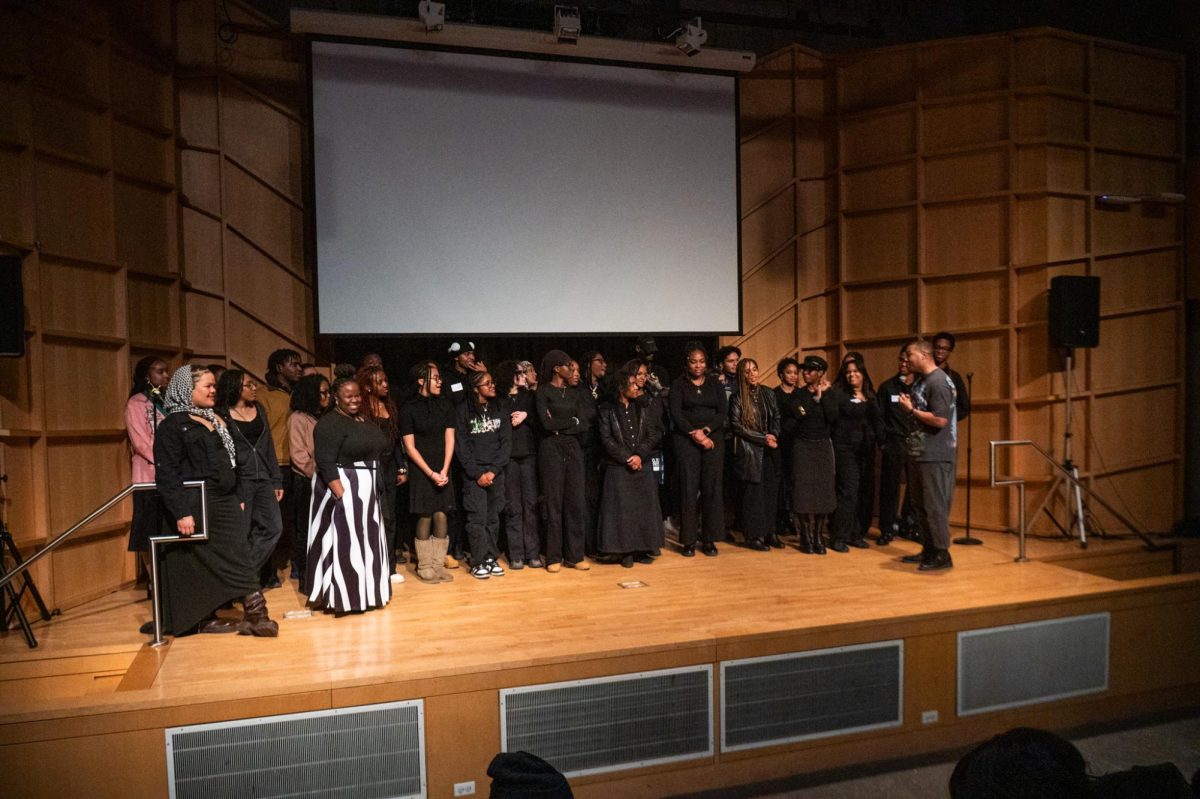“Black Mirror” is a British TV series known for exploring the darker side of humanity through the lens of technology. In recent seasons, the show has steered away from this into the general sci-fi category, losing some of its original focus on humanity’s darker themes. However, “Black Mirror’s” seventh season feels like a homage to older seasons.
The season starts off strong with “Common People” starring Rashida Jones as Amanda and Chris O’Dowd as Mike, offering a haunting take on the healthcare system.
It imagines a world where staying alive requires a subscription service with prices that continuously rise, and users or “common people” who can’t afford the deluxe package are subjected to becoming a walking ad as they spout advertisements anytime it relates to a situation in their life.
It’s a chilling take not just on healthcare systems but many corporations in our society, as they are greedy for money and will deliberately worsen the cheaper options to push people to purchase premium options.
Ironically, “Black Mirror” is streamed on Netflix, a platform built on the premise of being an ad-free streaming service, but it has now introduced ads into its lower-tier subscription plans, mirroring the very critique the episode delivers.
“Eulogy” and “Hotel Reverie” stood out as two of the most emotional episodes of this season. “Eulogy” is especially beautifully done, using the concept of stepping into photographs to explore themes of grief, memory, and regret. The protagonist’s journey through memories in search of a loved one’s forgotten face is devastating.
This episode highlights the power of nostalgia, the pain of missed communication, and the weight of regret. Even though the protagonist was able to step into the photograph, he couldn’t change anything as those moments were already gone. Although slow-paced, this episode was especially gut-wrenching to watch.
“Hotel Reverie” brings a different kind of heartbreak, telling the story of A-list actor Brandy Friday, played by Issa Rae, who was cast to act in a high-technology movie that allowed her to insert herself in an old movie.
She ultimately fell in love with an artificial intelligence character due to a complication in technology, leaving her stuck there for months. The inevitable ending hits hard, as their love story couldn’t last since she was AI.
“Plaything” stands out for its creativity and classic Black Mirror twist. The unexpected ending is sharp and unsettling, and the launch of the accompanying Throng lets the game add an immersive layer that makes the experience feel even more interactive and eerie.
While the return to USS Callister brought a wave of nostalgia, other episodes from past seasons might have been more deserving of a sequel.
“Bete Noire” follows Maria, played by Sienna Kelly, whose life begins to unravel after Verity (Rosy McEwen) joins her company.
Viewers eventually learn that Verity can alter reality with her words through the power of technology. She uses her ability to torment Maria in retaliation for high school bullying, causing her to spiral into insanity.
The storytelling is clever as different versions of the episode were released, each showcasing variations of a specific scene, prompting fans to debate what really happened, which mirrored Maria’s growing paranoia.
Towards the end, we realize both women were villains in their own way, which is classic to “Black Mirror.” It’s messy, morally gray, and deeply unsettling.
Overall, season seven brings “Black Mirror” back to its roots, with stories that twist reality just enough to be unsettling, yet remain grounded in critiquing modern society.








